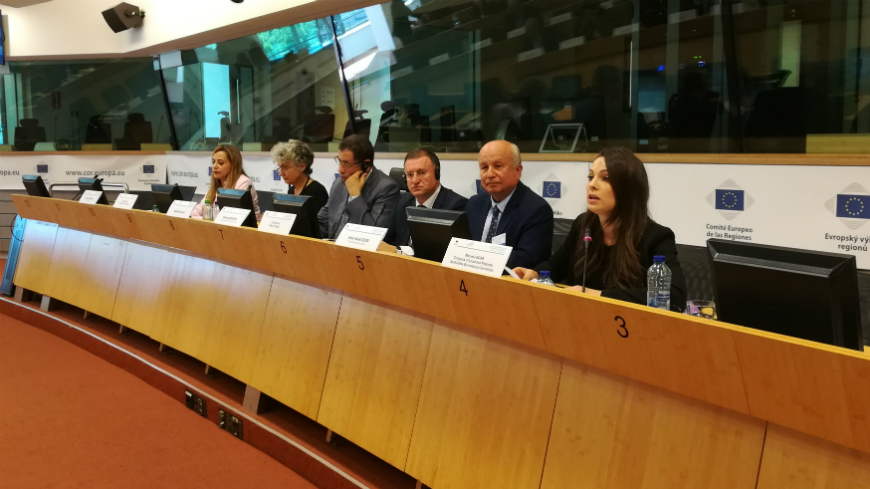The Vice-President of the Congress Governance Committee, Manuela BORA (Italy, SOC) participated in the meeting of the Commission for Sustainable Territorial Development of the Euro-Mediterranean Regional and Local Assembly (ARLEM), on 11 October 2018, in Brussels. Speaking at the session on governance and transparency, she presented the "European Code of Conduct for all persons involved in local and regional governance" which will be submitted to the Congress members for adoption at their 35th Session on 7 November 2018.
This Code takes into account the new challenges facing local authorities and is based on three observations: the increasing use of private law subcontractors by local authorities and the need to extend the scope of the Code to all persons involved in the provision of public services; the opportunity offered by the digitalization of public services to establish more transparent processes while respecting private data; and, finally, the growing distrust of citizens towards institutions and the need to protect de facto whistleblowers of corruption.
The Code details the principles that should guide the action of local and regional governance actors: accountability, transparency, probity, respect and non-discrimination, merit, and impartiality. Several topics covered by the Code are the subject of specific reports adopted by the Congress as part of the roadmap on activities to prevent corruption and promote public ethics at local and regional levels:
- The misuse of administrative resources during election campaigns (2016);
- Making public procurement transparent at local and regional levels (2017);
- Transparency and open government (2018);
- Conflicts of interest and clientelism (2018);
- The protection of whistleblowers (2019);
- Nepotism (recruitment of staff) (2019).
Mrs BORA particularly highlighted the need to set up procedures and mechanisms to ensure the practical implementation of these principles. "We call on local and regional authorities to adopt this code and to set up education and training courses for the actors concerned. It is by accompanying them with relevant information and advice that we can enable them to effectively fight corruption risks," she concluded.




